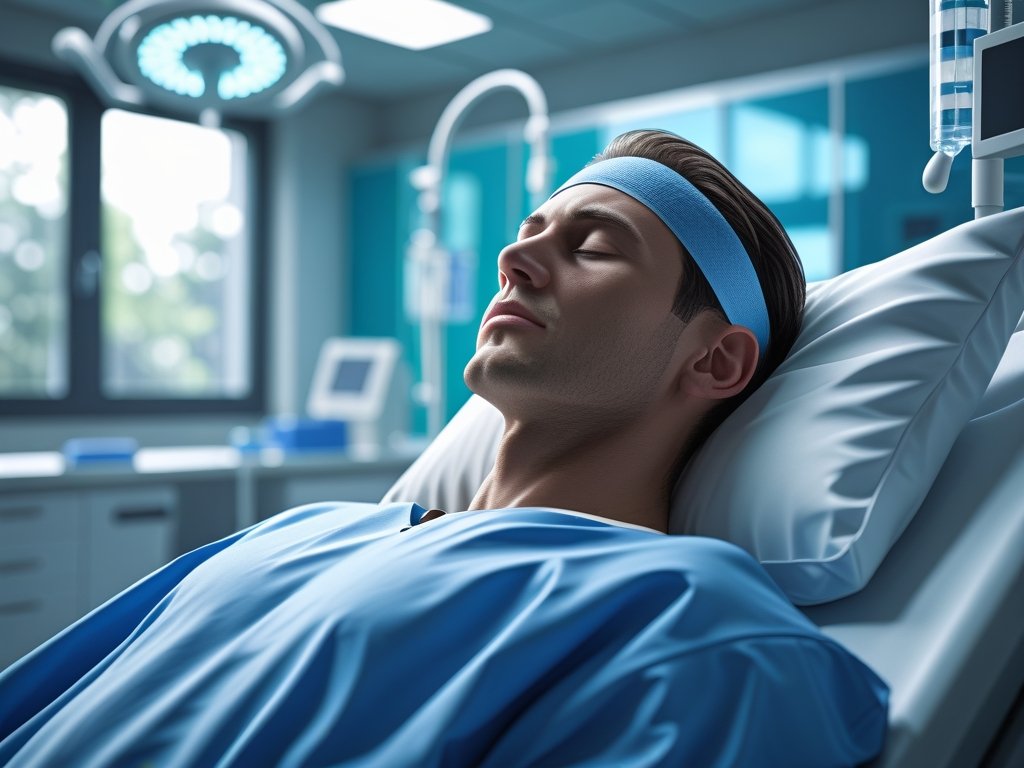The Intricate Link Between Sleep & Urological Health
Urological recovery, whether post-surgery, following infection, or managing chronic conditions like interstitial cystitis or prostatitis, often focuses heavily on dietary adjustments, physical therapy, and medication. However, a fundamental pillar of healing – sleep – is frequently underestimated. Sleep isn’t merely downtime; it’s an active restorative process where the body repairs tissues, regulates hormones crucial for bladder and pelvic floor function, modulates pain perception, and strengthens the immune system—all vital components in successful urological recovery. Ignoring sleep can significantly hinder progress, prolong discomfort, and even increase the risk of complications. Understanding how to leverage your natural sleep cues is therefore paramount to optimizing healing and regaining control over your urological health.
The connection runs deeper than simply getting enough rest. It’s about recognizing that our bodies communicate their needs through various signals, including those related to sleep. These aren’t just feelings of tiredness; they encompass changes in body temperature, hormone levels (like cortisol and melatonin), alertness, and even subtle shifts in pain perception. By becoming attuned to these cues and tailoring your recovery plan around them, you can create a synergistic effect—where rest actively supports healing instead of being an afterthought. This article explores how to recognize and utilize sleep cues for enhanced urological health and accelerated recovery.
Understanding Your Body’s Sleep-Wake Cycle & Urological Impact
The human body operates on a roughly 24-hour cycle called the circadian rhythm, which governs numerous physiological processes including sleep. Disruptions to this rhythm can profoundly impact urological function. For example, consistent sleep deprivation or irregular sleep schedules can exacerbate bladder symptoms like urgency and frequency because cortisol levels remain elevated for longer periods. Elevated cortisol has been linked to increased inflammation in the pelvic region, potentially worsening conditions such as interstitial cystitis. Furthermore, poor sleep impairs the nervous system’s ability to regulate bladder control effectively, leading to more frequent nighttime trips to the bathroom—creating a frustrating cycle of disrupted sleep and worsened symptoms.
A key element is recognizing that everyone experiences sleep cues differently. While some individuals are “morning larks” naturally waking early, others are “night owls” preferring later bedtimes. Trying to force yourself into a schedule that clashes with your natural chronotype can be counterproductive. Instead of rigidly adhering to arbitrary timings, focus on listening to your body. Are you experiencing significant fatigue even after seemingly adequate sleep? Is pain more pronounced at certain times of the day? These are clues indicating a potential misalignment between your lifestyle and your internal clock. Addressing this misalignment through strategic adjustments can significantly improve both sleep quality and urological symptom management. If you’re struggling with aligning your body’s cues, consider exploring how to build trust in your urinary cues for better overall health.
Finally, it’s important to understand that recovery itself impacts sleep. Pain, discomfort, or anxiety related to your urological condition can all contribute to insomnia or fragmented sleep. The goal isn’t just to achieve a certain number of hours of sleep; it’s to create an environment and routine that facilitates restful, restorative sleep—even if those hours are occasionally less than ideal due to pain flare-ups. This necessitates a holistic approach incorporating lifestyle modifications alongside any medical interventions prescribed by your healthcare provider. For individuals dealing with prostatitis, understanding how to cope with sleep disturbances is particularly important for effective recovery.
Recognizing Your Personal Sleep Cues
Identifying your individual sleep cues is the first step towards optimizing your recovery. It’s about moving beyond simply asking “Am I tired?” and delving deeper into how your body signals its need for rest.
- Early Warning Signs: Pay attention to subtle changes in mood, energy levels, or concentration. Irritability, difficulty focusing, or a sense of being overwhelmed can all indicate that you’re approaching sleep deprivation.
- Physical Signals: Notice any physical sensations that precede tiredness. This could include yawning (obviously!), heavy eyelids, muscle tension, or even a slight headache.
- Timing & Patterns: Observe when you typically experience these cues throughout the day. Are you consistently fatigued at a certain time? Do symptoms worsen as fatigue increases? Tracking this information for a week or two can reveal valuable patterns.
Beyond these common cues, consider if your urological condition itself is influencing sleep signals. For instance, with an overactive bladder, the urgency to urinate might disrupt sleep and mask other tiredness indicators. Conversely, chronic pain may lead to muscle tension that interferes with recognizing natural sleepiness. Recognizing this interplay is crucial for accurate self-assessment. Learning how better sleep supports urological function can offer further insights into managing these connections.
Creating a Sleep-Conducive Environment & Routine
Once you’ve identified your personal cues, building a supportive environment and routine becomes essential. This isn’t about achieving perfection; it’s about creating conditions that promote restful sleep.
- Optimize Your Bedroom: Ensure the room is dark, quiet, and cool. Consider using blackout curtains, earplugs, or a white noise machine to minimize distractions. Temperature plays a huge role – most people sleep best in a slightly cooler environment (around 65-68°F).
- Establish a Relaxing Bedtime Routine: This could include taking a warm bath, reading a book (avoid screens!), listening to calming music, or practicing gentle stretching. The goal is to signal your body that it’s time to wind down.
- Consistent Sleep Schedule: Even on weekends, try to maintain a relatively consistent sleep-wake cycle. This helps regulate your circadian rhythm and improves overall sleep quality.
Specifically for urological recovery, consider these additions:
* Avoid caffeine and alcohol close to bedtime, as they can exacerbate bladder symptoms.
* Empty your bladder before bed to minimize nighttime interruptions.
* Use supportive pillows to ensure comfortable positioning that doesn’t put pressure on the pelvic region.
Addressing Sleep Disruptions & Seeking Support
Even with a well-designed routine, sleep disruptions are inevitable – particularly during recovery. The key is to respond effectively rather than getting frustrated or anxious.
- If You Wake Up During the Night: Avoid looking at your clock! This can increase anxiety and make it harder to fall back asleep. Instead, focus on deep breathing exercises or guided meditation. Get out of bed if you cannot sleep after 20 minutes and do a relaxing activity (reading, gentle stretching) in dim light until you feel sleepy again.
- Pain Management: If pain is disrupting your sleep, talk to your doctor about appropriate pain management strategies. This might include medication, physical therapy, or alternative therapies like acupuncture.
- Professional Help: If you’re struggling with chronic insomnia or persistent sleep disturbances, don’t hesitate to seek professional help from a sleep specialist or therapist. Cognitive Behavioral Therapy for Insomnia (CBT-I) is a highly effective treatment option that addresses the underlying thoughts and behaviors contributing to sleep problems.
Remember, prioritizing sleep isn’t a sign of weakness; it’s an active investment in your recovery journey. By understanding your body’s cues and creating a supportive environment, you can harness the restorative power of sleep to accelerate healing and regain control over your urological health. It’s about working with your body, not against it. To further support bladder health, consider how to align sleep patterns with urinary stability for optimal recovery.





















